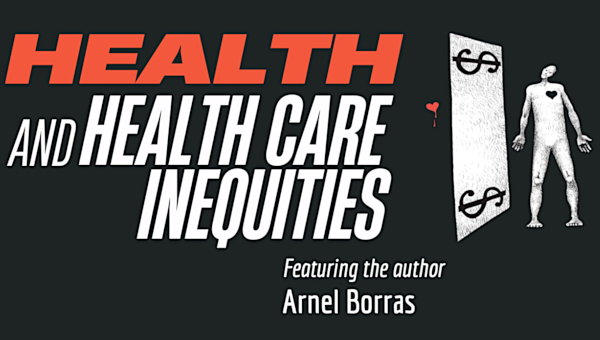What’s Wrong with Ontario’s Health Ministry and How to Fix It
Health Minister David Caplan’s resignation is the right thing in the wake of scathing Provincial Auditor’s reports and repeated exorbitant salary revelations at the Ministry of Health (MOH). Undoubtedly in upcoming days the McGuinty government will scramble to contain the damage. This time, it is vital that the Premier and new Health Minister understand that to fix this situation means to soberly assess the extent of the Ministry’s disregard for public accountability and to take stock of the distance their government’s health policy has moved away from the values and priorities of Ontarians.
Inappropriate secrecy at the Ministry of Health involves much more than obfuscation of top bureaucrats’ salaries. In recent years, the Ontario Health Coalition and others have been denied access to an array of information that belongs properly in the public domain. Three times in a row, Freedom of Information requests and the aid of NDP Health Critics’ offices have been required to obtain release of Ministry data on care levels in the province’s publicly-funded long term care homes. Former Conservative Health Critic Elizabeth Witmer has been refused public disclosure of any part of the government’s 10-year health plan. We have been denied financial information and value for money audits covering hundreds of millions of dollars in public-private partnership (P3) hospital deals across Ontario, even after the court ordered the public filing of this information in the Brampton P3. We have been denied access to financial information and even lists of proposed or planned cuts in their local publicly-funded non-profit hospitals in a number of communities. It took two years of a Freedom of Information fight to obtain release of information on how much public money is being paid to private laboratory companies in Ontario; information that involves more than half a billion dollars in public funds.
Most recently, we have repeatedly tried to obtain the Terms of Reference and process for the Minister’s panel on Rural and Northern Health Care, announced in response to a protest last spring involving thousands of Ontarians facing hospital cuts and closures in their communities. Though the Ministry announced the panel in July and “Phase One” of its work is supposed to be complete this fall, we have not yet been able to get even this basic information.
But the problem is not limited to improper secrecy. The revelations regarding consultants and top bureaucrats have simply widened the deep chasm between the government’s and the public’s core priorities and values.
Litany of Problems at MOH
Imagine how the residents of Fort Erie and Port Colborne feel when confronted with salaries of top bureaucrats who make in one or two days more than most people in their communities earn in a month, or when they find out more than a billion dollars in public funds has been spent on an esoteric computer system that doesn’t yet work. The residents of these communities have just witnessed the closure of their local hospital emergency departments, inpatient beds and surgeries.
The same applies to elderly North York residents who now must somehow travel up to Newmarket to get cataract surgery since it was closed in their local hospital, or people in Markham where their hospital has closed all non-urgent services for 10 days this year to save money. Imagine the frustration in the community of Burk’s Falls where the local Urgent Care Centre was cut without notice in June, or in the dozens of communities that have lost hospital beds, pain clinics, physiotherapy, chiropody, laboratories, neonatal intensive care, birthing, mammography, front-line staff and a raft of other services.
In our recent town hall meetings, Ontarians express fury at the excesses revealed in the Ministry of Health. But they are also irate over expensive consultants hired all across the province’s hospital system; over unaccountable Local Health Integration Networks (LHINs) for which no one knows how much they really cost or what benefit, if any they provide; over government-appointed hospital supervisors wiping out thousands of community memberships and elected hospital boards; over repeated threats to cut and close local hospitals that have taken up to a century of local fundraising and effort to build.
The problems are not the creation of a single health minister. The culture of the Health Ministry has grown over a decade or more. The channelling of bureaucrats’ six-digit salaries through hospitals extends back to the beginning of the Harris government. The McGuinty government has simply escalated the eradication of open and elected local hospital boards that began with the rewriting of hospital by-laws under forced amalgamations in the mid-1990s. Similarly, the shielding of data on long term care homes started under the Harris government and has continued with McGuinty. The story is same for the obfuscation of financial data on the privatized P3 hospitals and the ways in which hiding or denying hospital restructuring has become the norm.
For years now, the trend at the Ministry of Health has been to quash public disagreement by removing most meaningful public processes, and to replace democratic engagement with an elite of technocrats, who, like an egomaniacal Wizard of Oz, hide behind their curtain pulling and pushing levers of funding and policy while shielding themselves from public scrutiny.
The Premier needs to embrace the recommendations of the Provincial Auditor, of course, but he and the new Health Minister will need to do much more to restore public confidence. We need new rules requiring public disclosure at the ministry and in our health institutions (including private contracts paid by public monies); more robust oversight and appeal; real whistle-blower protection; a ban on gag-clauses in employee contracts; a reinstitution of proper parliamentary processes and the fresh air of democratic debate and meaningful public input into policy changes that affect our lives and our access to care.
For those of us who believe firmly in the value of public health care system, the fight to protect and improve upon public health care relies on rebuilding confidence in our civil service with the expectations of professionalism and public accountability and a fundamental respect for people of Ontario that must accompany it. •
More information about the neoliberal attack on public healthcare: Whose Health Care.





